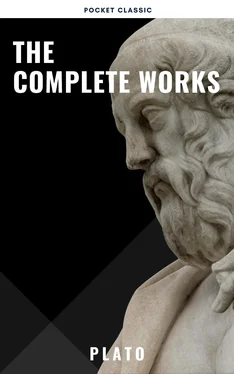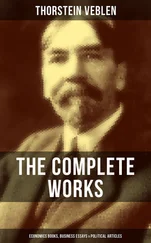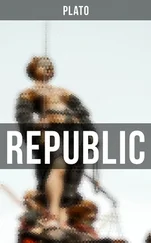GORGIAS: Yes, certainly.
SOCRATES: And now I will endeavour to explain to you more clearly what I mean: The soul and body being two, have two arts corresponding to them: there is the art of politics attending on the soul; and another art attending on the body, of which I know no single name, but which may be described as having two divisions, one of them gymnastic, and the other medicine. And in politics there is a legislative part, which answers to gymnastic, as justice does to medicine; and the two parts run into one another, justice having to do with the same subject as legislation, and medicine with the same subject as gymnastic, but with a difference. Now, seeing that there are these four arts, two attending on the body and two on the soul for their highest good; flattery knowing, or rather guessing their natures, has distributed herself into four shams or simulations of them; she puts on the likeness of some one or other of them, and pretends to be that which she simulates, and having no regard for men’s highest interests, is ever making pleasure the bait of the unwary, and deceiving them into the belief that she is of the highest value to them. Cookery simulates the disguise of medicine, and pretends to know what food is the best for the body; and if the physician and the cook had to enter into a competition in which children were the judges, or men who had no more sense than children, as to which of them best understands the goodness or badness of food, the physician would be starved to death. A flattery I deem this to be and of an ignoble sort, Polus, for to you I am now addressing myself, because it aims at pleasure without any thought of the best. An art I do not call it, but only an experience, because it is unable to explain or to give a reason of the nature of its own applications. And I do not call any irrational thing an art; but if you dispute my words, I am prepared to argue in defence of them.
Cookery, then, I maintain to be a flattery which takes the form of medicine; and tiring, in like manner, is a flattery which takes the form of gymnastic, and is knavish, false, ignoble, illiberal, working deceitfully by the help of lines, and colours, and enamels, and garments, and making men affect a spurious beauty to the neglect of the true beauty which is given by gymnastic.
I would rather not be tedious, and therefore I will only say, after the manner of the geometricians (for I think that by this time you will be able to follow)
as tiring : gymnastic :: cookery : medicine;
or rather,
as tiring : gymnastic :: sophistry : legislation;
and
as cookery : medicine :: rhetoric : justice.
And this, I say, is the natural difference between the rhetorician and the sophist, but by reason of their near connection, they are apt to be jumbled up together; neither do they know what to make of themselves, nor do other men know what to make of them. For if the body presided over itself, and were not under the guidance of the soul, and the soul did not discern and discriminate between cookery and medicine, but the body was made the judge of them, and the rule of judgment was the bodily delight which was given by them, then the word of Anaxagoras, that word with which you, friend Polus, are so well acquainted, would prevail far and wide: ‘Chaos’ would come again, and cookery, health, and medicine would mingle in an indiscriminate mass. And now I have told you my notion of rhetoric, which is, in relation to the soul, what cookery is to the body. I may have been inconsistent in making a long speech, when I would not allow you to discourse at length. But I think that I may be excused, because you did not understand me, and could make no use of my answer when I spoke shortly, and therefore I had to enter into an explanation. And if I show an equal inability to make use of yours, I hope that you will speak at equal length; but if I am able to understand you, let me have the benefit of your brevity, as is only fair: And now you may do what you please with my answer.
POLUS: What do you mean? do you think that rhetoric is flattery?
SOCRATES: Nay, I said a part of flattery; if at your age, Polus, you cannot remember, what will you do by-and-by, when you get older?
POLUS: And are the good rhetoricians meanly regarded in states, under the idea that they are flatterers?
SOCRATES: Is that a question or the beginning of a speech?
POLUS: I am asking a question.
SOCRATES: Then my answer is, that they are not regarded at all.
POLUS: How not regarded? Have they not very great power in states?
SOCRATES: Not if you mean to say that power is a good to the possessor.
POLUS: And that is what I do mean to say.
SOCRATES: Then, if so, I think that they have the least power of all the citizens.
POLUS: What! are they not like tyrants? They kill and despoil and exile any one whom they please.
SOCRATES: By the dog, Polus, I cannot make out at each deliverance of yours, whether you are giving an opinion of your own, or asking a question of me.
POLUS: I am asking a question of you.
SOCRATES: Yes, my friend, but you ask two questions at once.
POLUS: How two questions?
SOCRATES: Why, did you not say just now that the rhetoricians are like tyrants, and that they kill and despoil or exile any one whom they please?
POLUS: I did.
SOCRATES: Well then, I say to you that here are two questions in one, and I will answer both of them. And I tell you, Polus, that rhetoricians and tyrants have the least possible power in states, as I was just now saying; for they do literally nothing which they will, but only what they think best.
POLUS: And is not that a great power?
SOCRATES: Polus has already said the reverse.
POLUS: Said the reverse! nay, that is what I assert.
SOCRATES: No, by the great—what do you call him?—not you, for you say that power is a good to him who has the power.
POLUS: I do.
SOCRATES: And would you maintain that if a fool does what he thinks best, this is a good, and would you call this great power?
POLUS: I should not.
SOCRATES: Then you must prove that the rhetorician is not a fool, and that rhetoric is an art and not a flattery—and so you will have refuted me; but if you leave me unrefuted, why, the rhetoricians who do what they think best in states, and the tyrants, will have nothing upon which to congratulate themselves, if as you say, power be indeed a good, admitting at the same time that what is done without sense is an evil.
POLUS: Yes; I admit that.
SOCRATES: How then can the rhetoricians or the tyrants have great power in states, unless Polus can refute Socrates, and prove to him that they do as they will?
POLUS: This fellow—
SOCRATES: I say that they do not do as they will;—now refute me.
POLUS: Why, have you not already said that they do as they think best?
SOCRATES: And I say so still.
POLUS: Then surely they do as they will?
SOCRATES: I deny it.
POLUS: But they do what they think best?
SOCRATES: Aye.
POLUS: That, Socrates, is monstrous and absurd.
SOCRATES: Good words, good Polus, as I may say in your own peculiar style; but if you have any questions to ask of me, either prove that I am in error or give the answer yourself.
POLUS: Very well, I am willing to answer that I may know what you mean.
SOCRATES: Do men appear to you to will that which they do, or to will that further end for the sake of which they do a thing? when they take medicine, for example, at the bidding of a physician, do they will the drinking of the medicine which is painful, or the health for the sake of which they drink?
POLUS: Clearly, the health.
SOCRATES: And when men go on a voyage or engage in business, they do not will that which they are doing at the time; for who would desire to take the risk of a voyage or the trouble of business?—But they will, to have the wealth for the sake of which they go on a voyage.
Читать дальше












